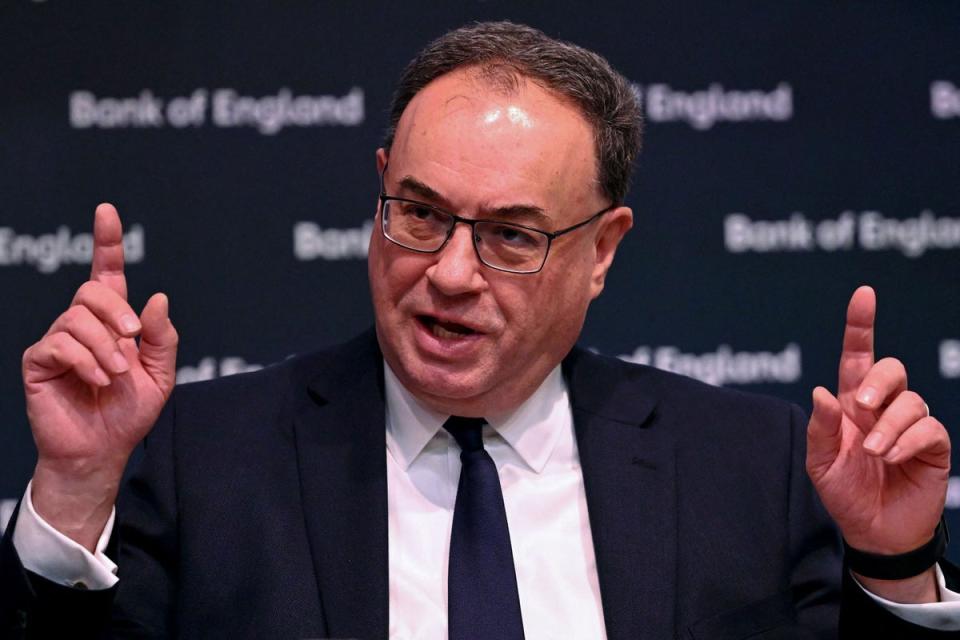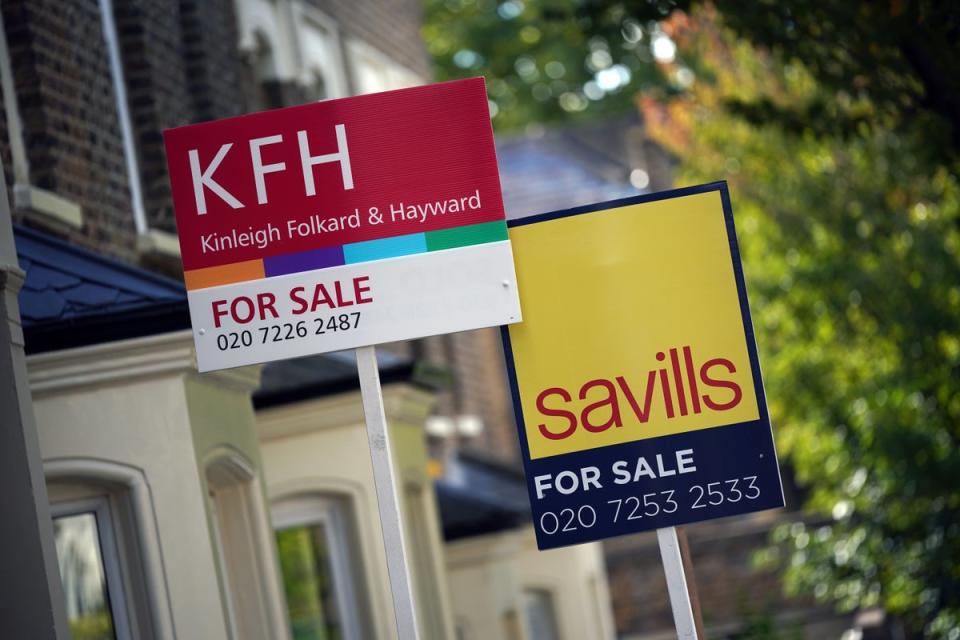Bank of England raises interest rates to 3.5% despite inflation easing
Interest rates have risen again to their highest level for 14 years as the Bank of England tries to tame inflation, putting more pressure on households and businesses already hit by the cost of living crisis.
Governor Andrew Bailey announced that officials had agreed to a rate of 3.5 per cent, the highest since 2008.
Six members of the Bank’s nine-strong Monetary Policy Committee (MPC) backed the 0.5 percentage-point rise, which marked a slight slowdown from last month’s 33-year record rise of 0.75 percentage points.
The Bank’s decision to raise rates for the ninth time in a row reflects the distance Britain’s economy has travelled in the little more than a year since borrowing costs were at their lowest.
The UK is still forecast to enter recession, though the Bank has revised its GDP projection upwards from November to reflect positive movements in the economy.
The pound dipped in response to the rate announcement, dropping by as much as 1 per cent against the dollar. It later recovered to take the exchange rate to 1.232, slightly below Tuesday’s six-month high.
Thursday’s vote was taken after official figures showed the rate of inflation had eased by more than expected, hitting 10.7 per cent in November – still far above the Bank’s 2 per cent target but down from October’s 41-year record of 11.1 per cent.
NEW: Interest rates rise to 3.5%
This is yet more evidence that the government have lost control of the economy, harming growth and leaving millions of working people paying a Tory mortgage penalty for years to come.
Only Labour will stabilise our economy and get it growing.— Rachel Reeves (@RachelReevesMP) December 15, 2022
The MPC said a “forceful” policy response was justified despite the encouraging figures because the labour market remained tight, with a high number of vacancies and rising unemployment. There were also signs that inflationary pressures could stick around for longer than had been thought, it said.
Data released earlier this week showed that regular pay, excluding bonuses, rose by 6.1 per cent in the three months to October – a record outside the pandemic – as workers pushed to avoid being left behind after an extreme rise in the cost of living over a relatively short period.

However, wages continued to be outstripped by prices, falling by 2.7 per cent in real terms over the same period after inflation was taken into account.
The Bank now expects UK GDP to decline by 0.1 per cent in the final quarter of 2022, which is 0.2 percentage points stronger than expected in last month’s report but would still show the UK entering a technical recession.
Chancellor Jeremy Hunt said: “High inflation, exacerbated by Putin’s war in Ukraine, continues to plague countries across the world, eating into people’s pay cheques and driving up food and energy prices.
“I know this is tough for people right now, but it is vital that we stick to our plan, working in lockstep with the Bank of England as they take action to return inflation to target.”
Shadow chancellor Rachel Reeves said the Bank’s decision was “yet more evidence that the government has lost control of the economy”.
Unions warned that higher borrowing costs risked leaving people even further behind the cost of living rises. Kate Bell, head of economics at the TUC, said: “With the UK economy in recession, and the value of everyone’s pay plummeting, this rate rise could make a bad situation worse.

“The priority now should be protecting living standards and boosting the economy to stop the recession and protect people’s jobs. The best way to do this is by giving working people decent pay rises that keep up with the cost of living.”
A spokesperson for the Unite union said the Bank had made the wrong decision, warning that another rise in borrowing costs “could be the straw that breaks the camel’s back”.
The European Central Bank and the Swiss National Bank also approved raised rates of 0.5 percentage points on Thursday after a prior 0.75 percentage-point hike, while the US Federal Reserve did the same earlier in the week.

 Yahoo Finance
Yahoo Finance 